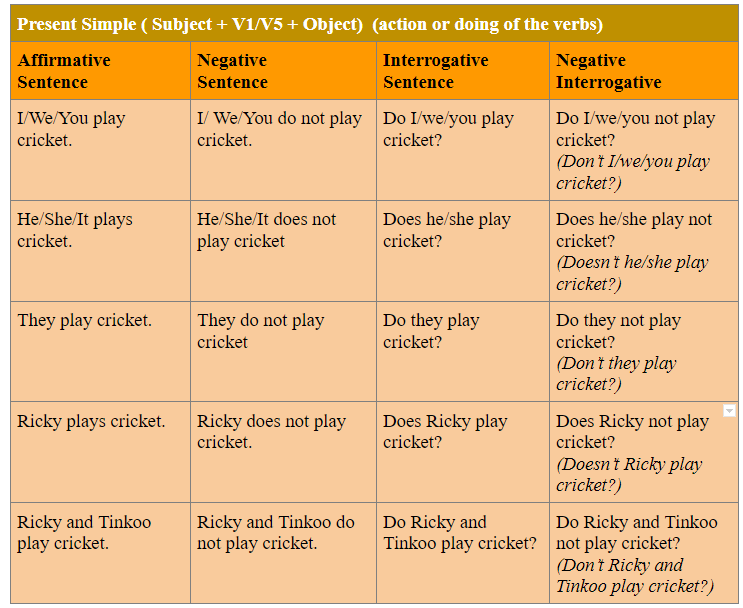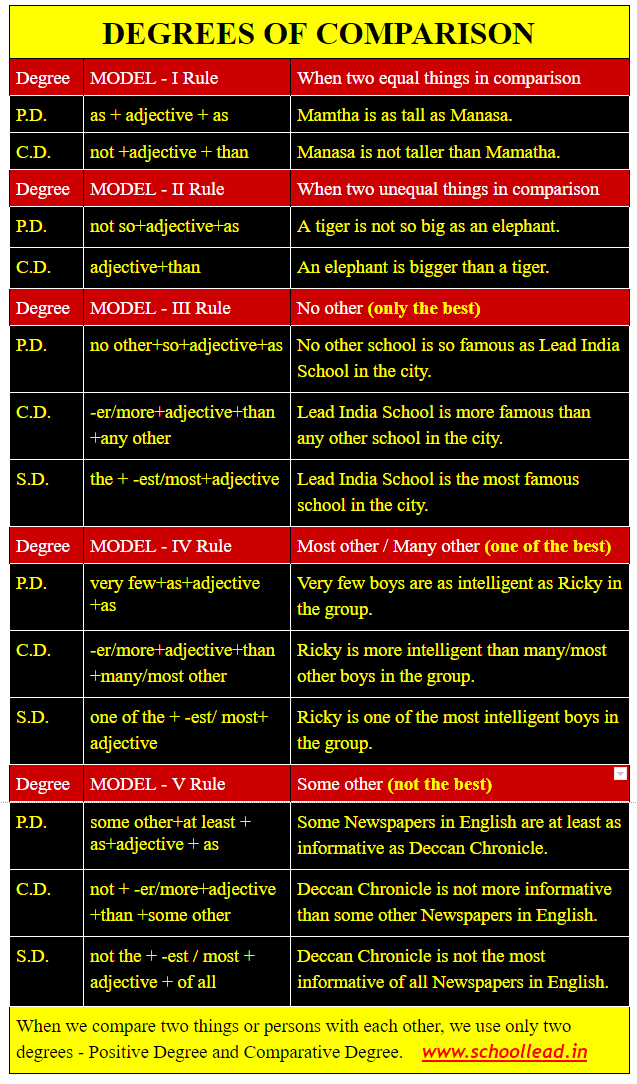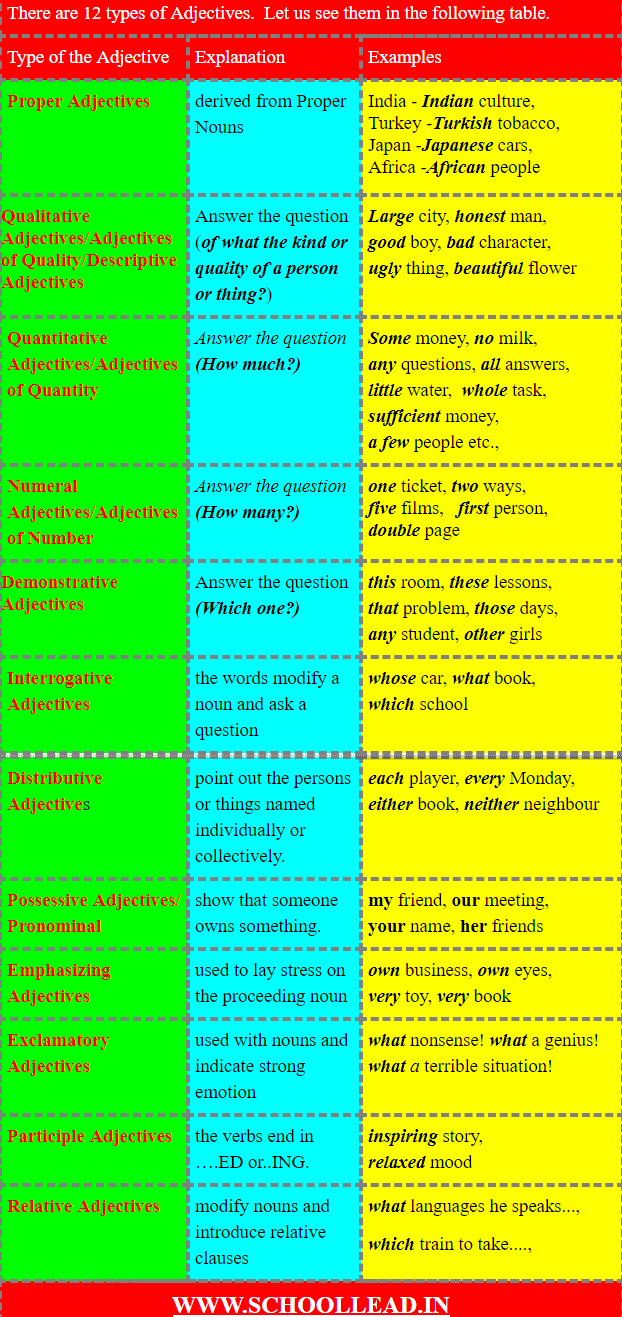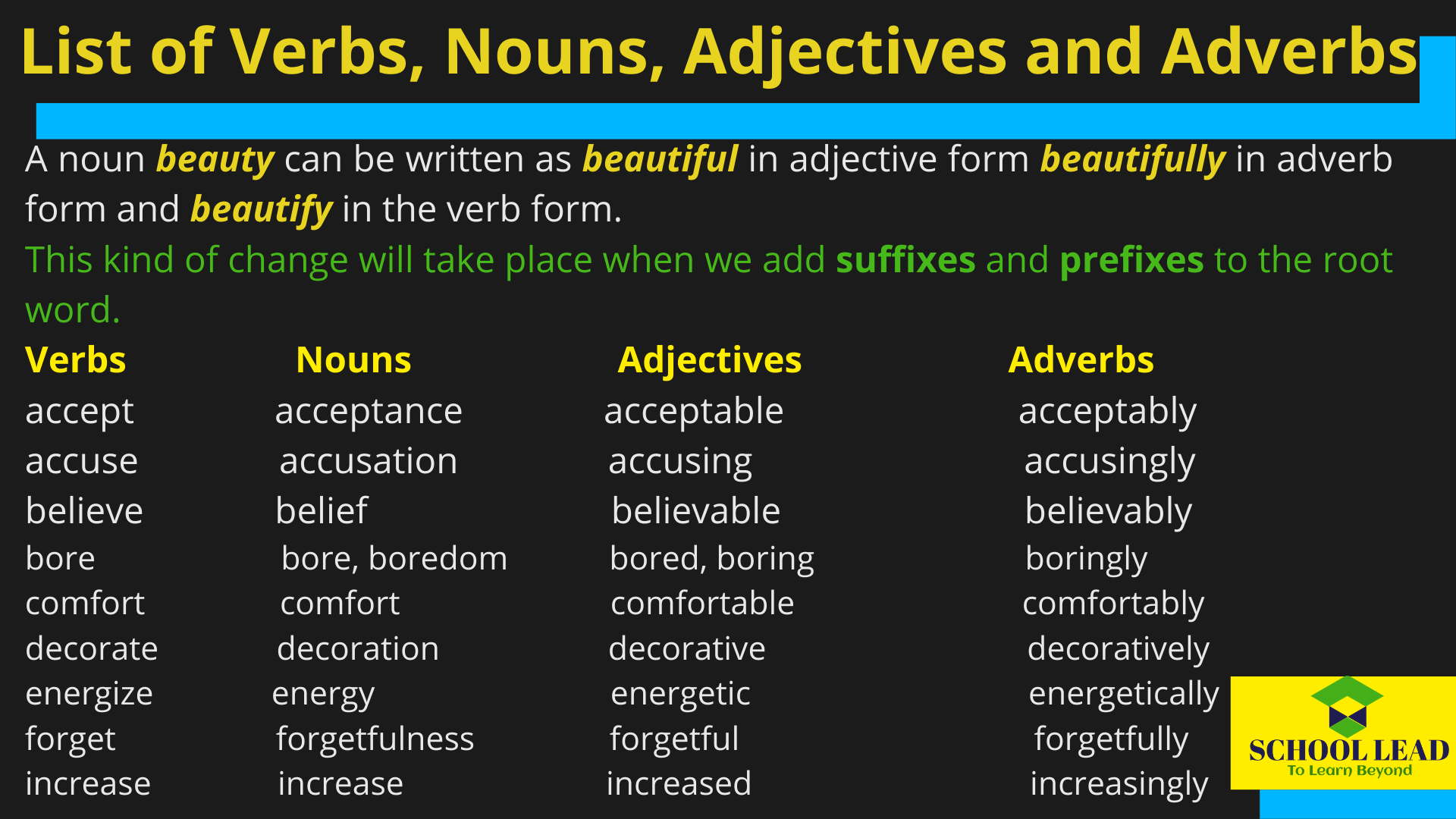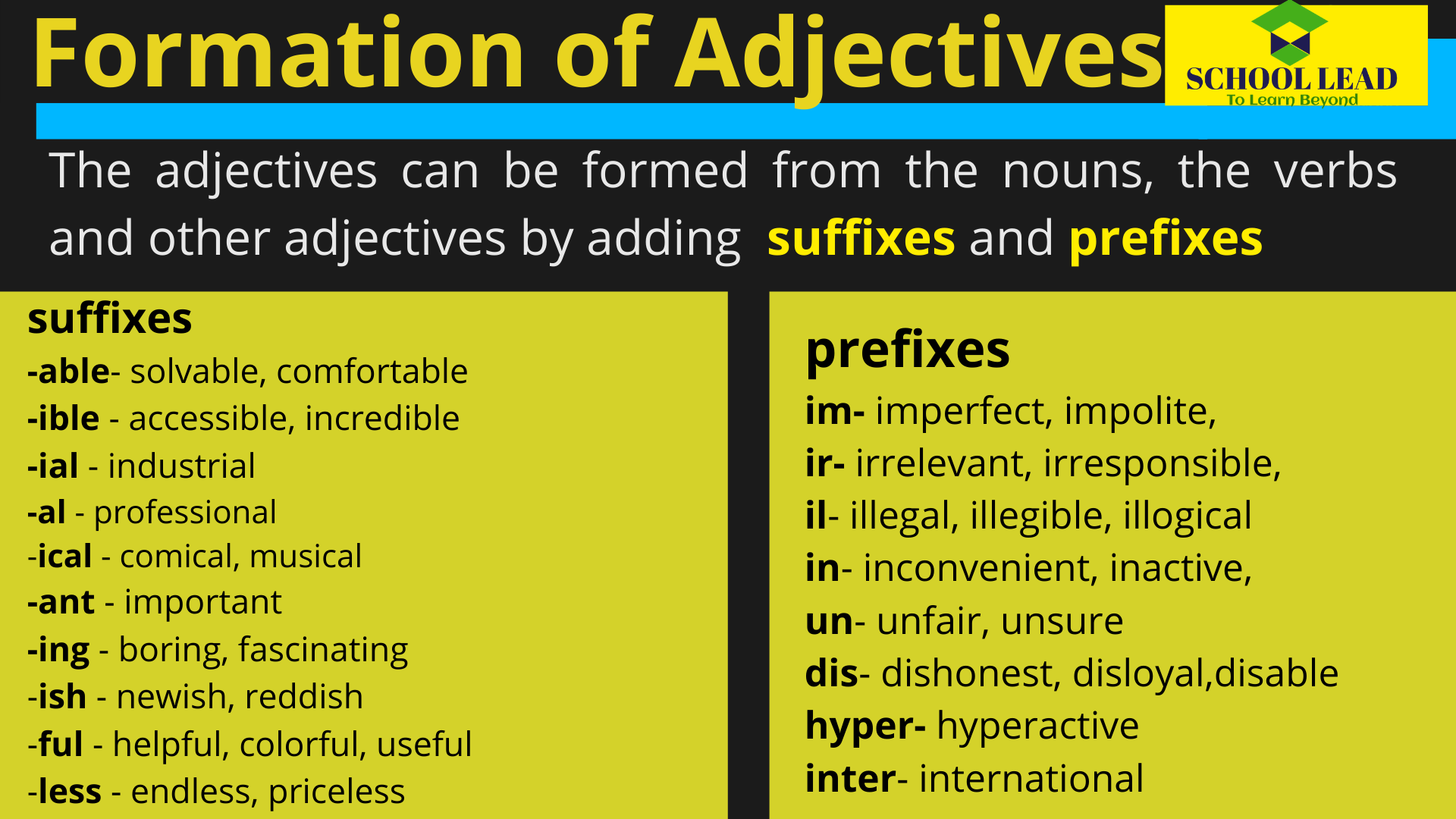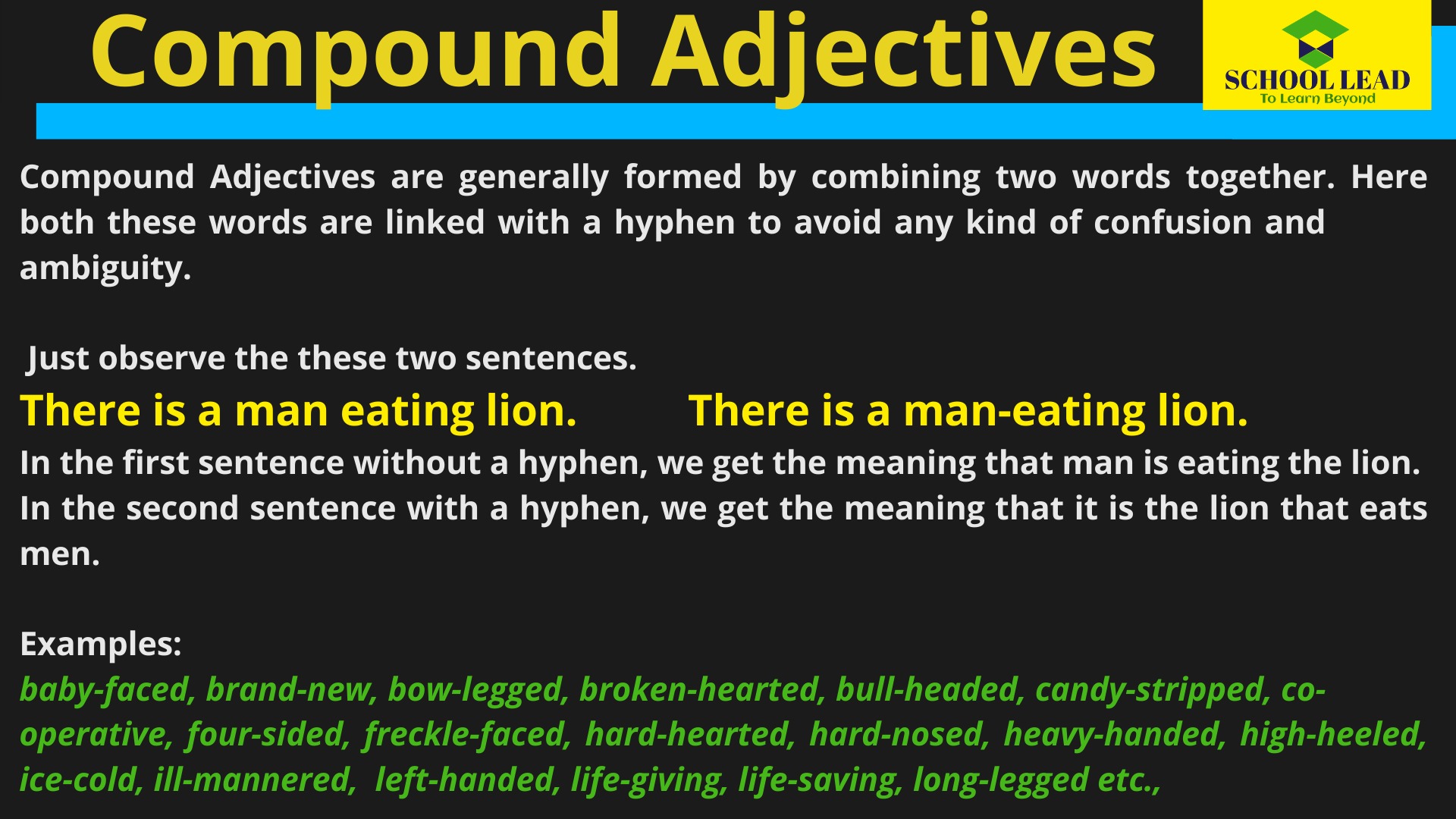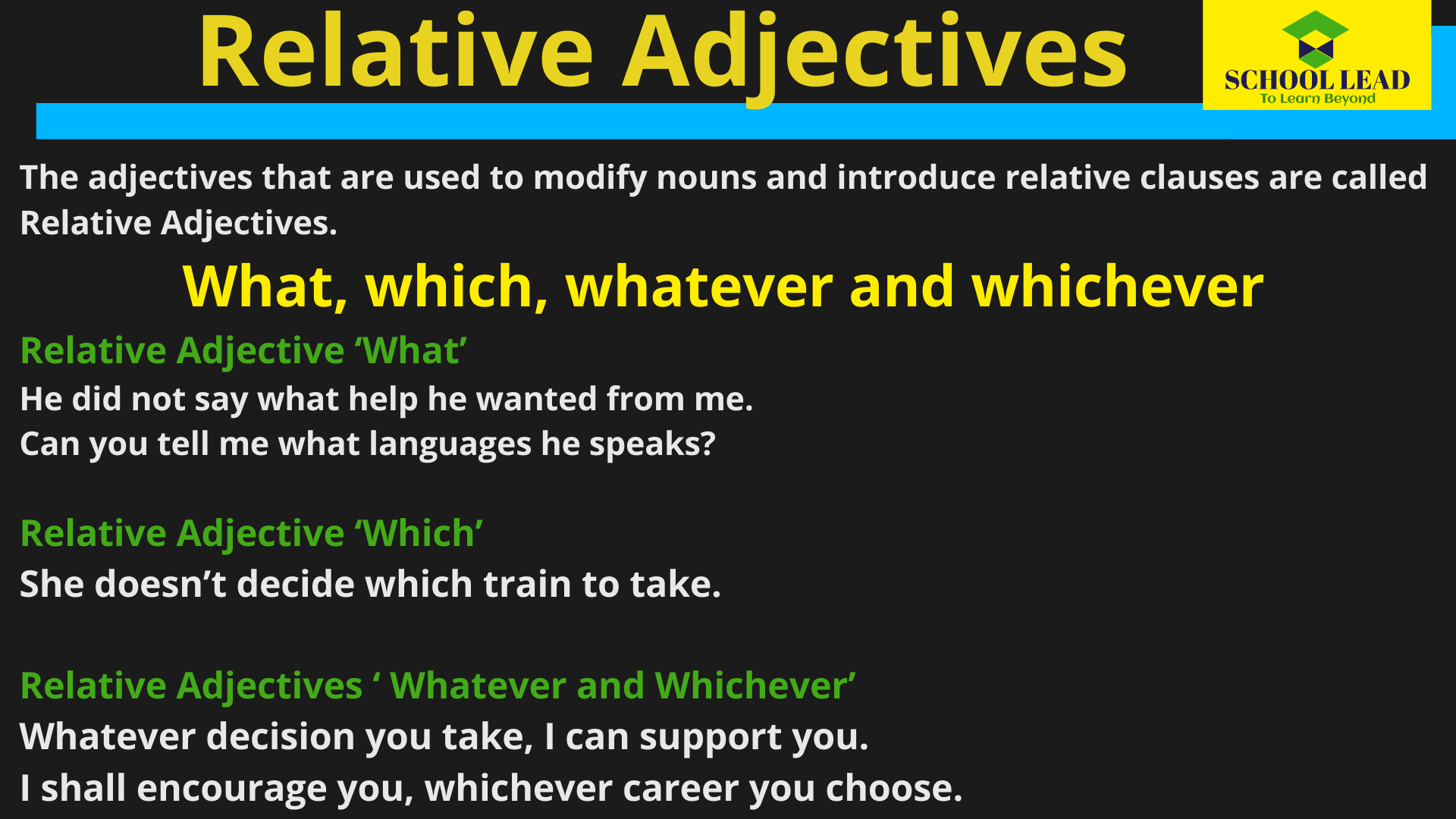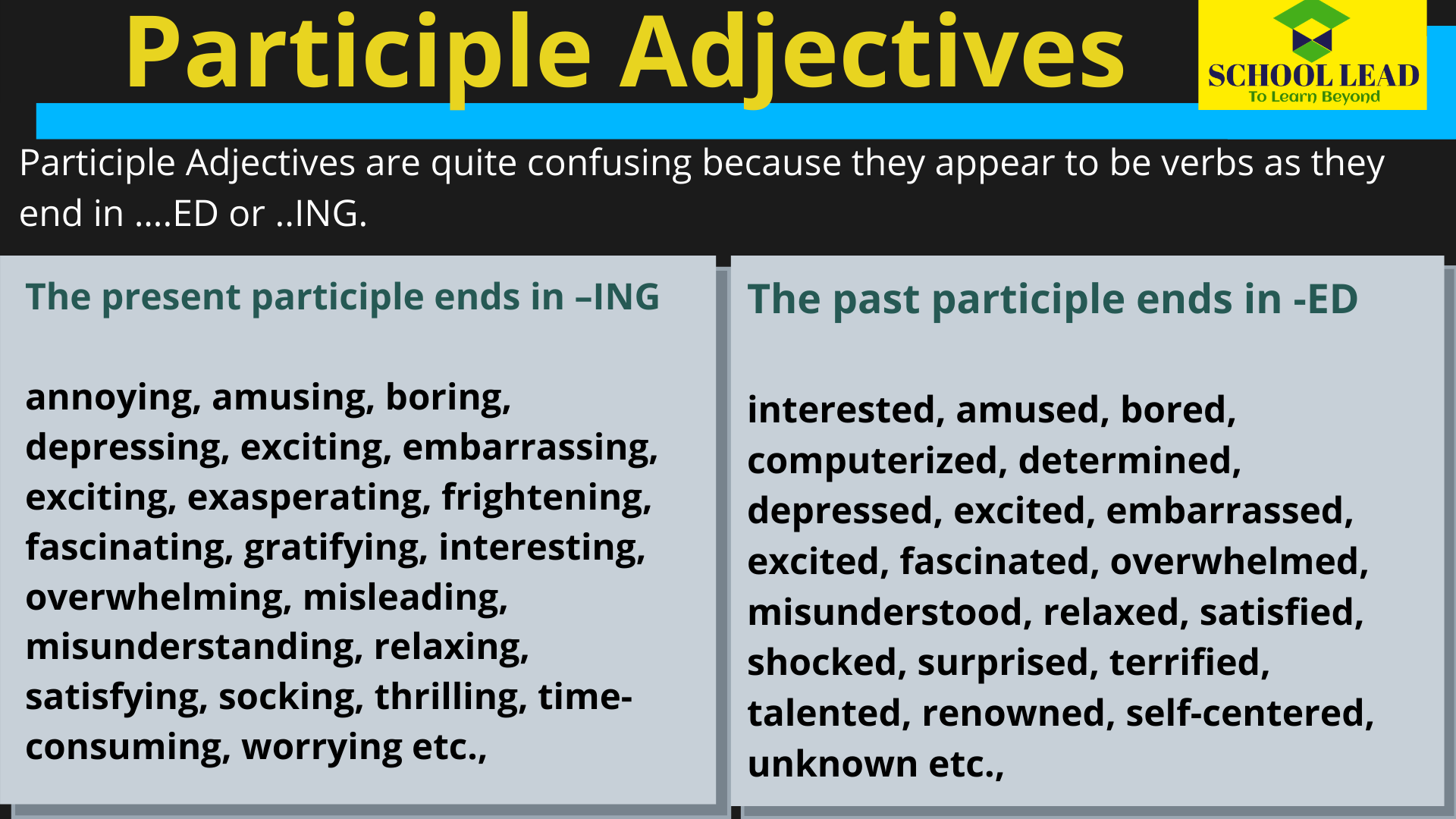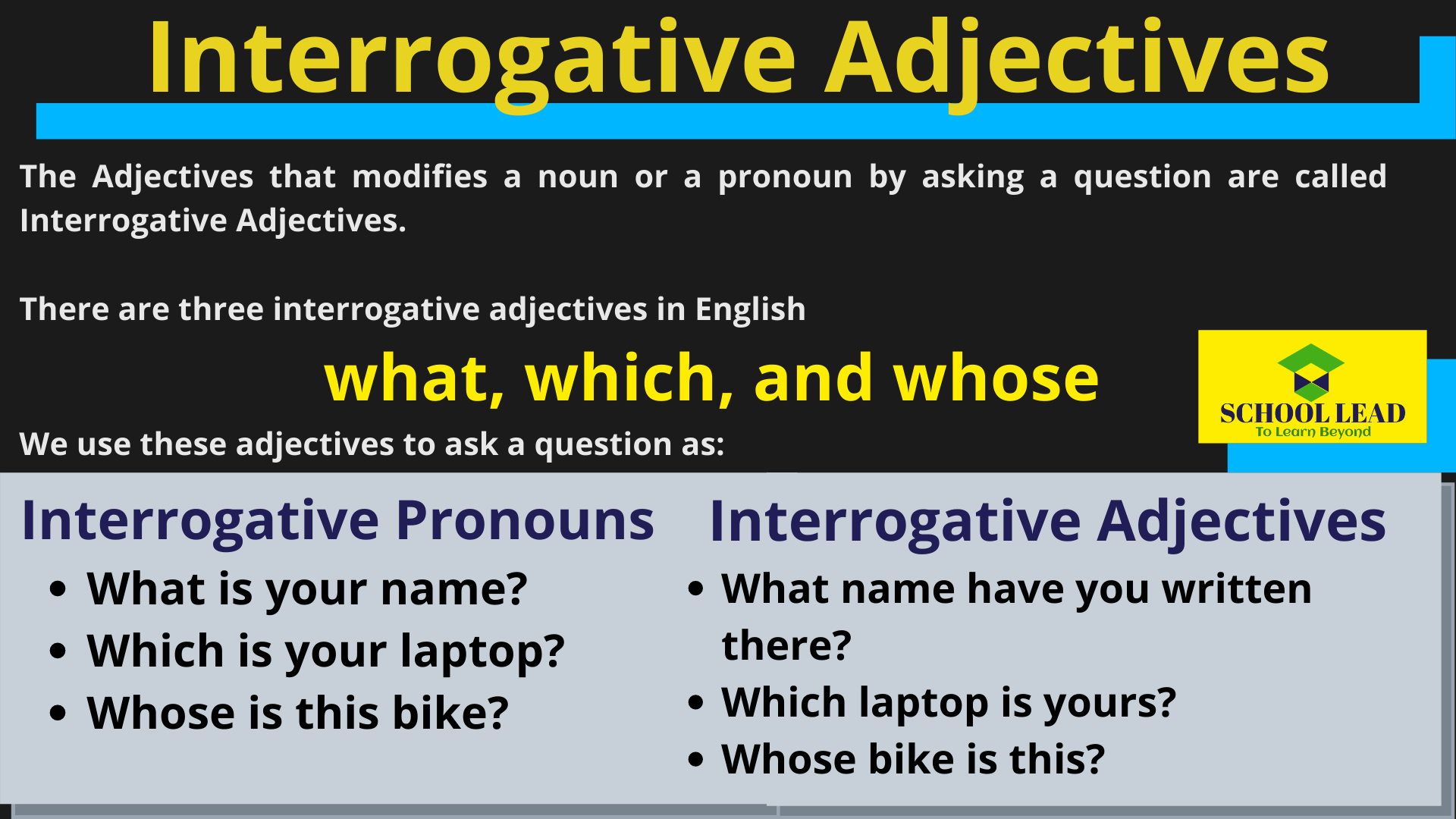Present Simple Tense in English Grammar: The Present Simple is also called Present Indefinite or Simple Present Tense. It generally describes present routine events, facts, truths etc., Present Simple Tense Structure and Formula:
10.00 am - 06.00 pm +91 9866101718 contact@schoollead.in
Need study abroad support? Get In Touch
Tenses in English Grammar The tense means time. The tense of the verb shows not only the time of action but also its continuance or completion. Here, you are going to learn
Articles Worksheets Here, several Articles Worksheets have been provided for your practice to be perfect in the chapter of the articles. The usage of Articles in English Grammar has been explained in a
What Are Articles In English Grammar? 'Articles' chapter is an important component of English Grammar. It is highly useful for the students and the candidates appearing for competitive exams. Basically, Articles in
Degrees of Comparison Definition: A degree of comparison is the form of an adjective or an adverb used to compare two or more things. These Adjectives or Adverbs have three degrees of comparison
What is an Adjective? ADJECTIVE - adds something to the meaning of a noun. What is an Adjective? An adjective is a word or group of words used to describe or modify
List of Verbs, Nouns, Adjectives and Adverbs Here, you find a List of Verbs, Nouns, Adjectives and Adverbs. Having a comprehensive understanding of how words can change from one part of speech to
Formation of Adjectives It is very important to know the formation of Adjectives. The adjectives can be formed from the nouns, the verbs and other adjectives by adding prefixes and suffixes.
Compound Adjectives Compound Adjectives are generally formed by combining two or more words together. Here both these words are linked with a hyphen to avoid any kind of confusion and ambiguity. Just
Relative Adjectives The adjectives that are used to modify nouns and introduce relative clauses are called Relative Adjectives. What, which, whatever, and whichever are relative adjectives and they stand before a noun.
Participle Adjectives Participle Adjectives are quite confusing because they appear to be verbs as they end in ….ED or ..ING. The participles are two types. The present participle, which ends in –ING,
Exclamatory Adjectives Exclamatory Adjectives are used with the nouns and indicate strong emotion. Here the question word ‘what’ is used to express the strong emotion. This type of sentence ends with an
What is an Adjective? ADJECTIVE - adds something to the meaning of a noun. What is an Adjective? An adjective is a word or group of words used to describe or


